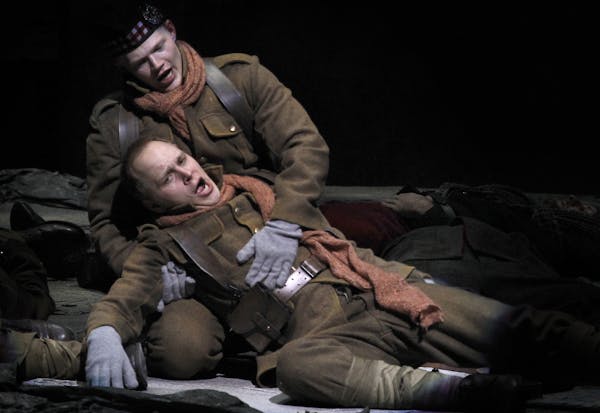For lovers of new music, this week's Saint Paul Chamber Orchestra concerts at Ordway Center in St. Paul are a must-hear. The program featured two new works, and each represented significant additions to the repertoire.
In "How Wild the Sea," Kevin Puts, whose Pulitzer Prize-winning opera, "Silent Night," premiered at Minnesota Opera, wrote a concerto for string quartet and orchestra, receiving its regional premiere. He drew inspiration from images of an elderly Japanese man sitting on the rooftop of his home during the tsunami of 2011.
The Miró Quartet opened the work with lush, melancholic melodies, reminiscent of the protagonist. With the entry of the orchestra, that tonality started to unravel, the music becoming more dissonant, until the orchestra overwhelmed the soloists.
A long movement for the quartet set lyric melodies in opposition to one another. The violins played at the upper end of their range, striking the ear harshly. It is not easy to make those notes sound pleasant. Throughout, the Miró Quartet played the difficult music effectively and with aplomb.
When the orchestra returned, the earlier tumult was resolved. The two ensembles played in concert, a finale that spoke of survival and hope.
For John Luther Adams' "Become River," an SPCO commission that received its world premiere, the orchestra was radically reconfigured. The high strings were at the back of the stage, the upper winds at the center and the lower strings, lower winds and brass at the front.
The music began at the back, as tiny rivulets became brooks feeding into the river. The sound moving forward had the effect of water descending from great heights. Eventually, the wide river delta reached the ocean.
Adams is no relation to the more famous John Adams, but shares musical roots with him. This was an extremely successful use of minimalism, the repetitions nicely evoking the undulating waves. As more instruments were added, the sonic textures became richer and more complex, but never lost their transparency.
Adams has a real affinity for nature, and he created a captivating tone poem. Conductor Steven Schick gave a reading that was as delicate as the Puts' was clamorous.
The orchestra played with great sensitivity to the specific aural universe of each new composition.
Also performed in these concerts are Beethoven's Symphony No. 1 and Rossini's Overture to "The Barber of Seville."
William Randall Beard writes about music and theater.
In heated western Minn. GOP congressional primary, outsiders challenging incumbent

Minnesota Sports Hall of Fame: A class-by-class list of all members

This retired journalist changed professional wrestling from Mankato

